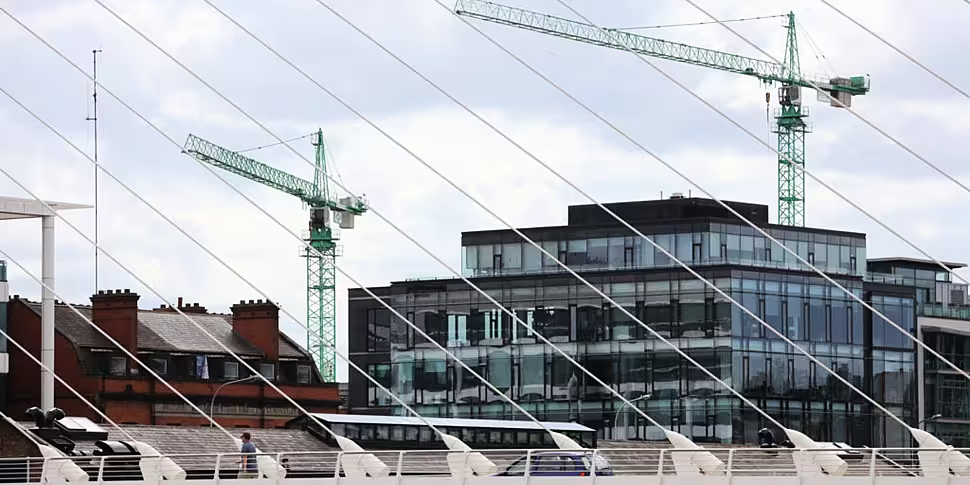Irish business group IBEC has said the Irish economy is set to slow in 2020.
Its latest quarterly economic outlook forecasts GDP growth of 4% this year, based on the back of buoyant investment and rising household incomes.
It said household income per-person has now reached record levels and is growing at 6% annually.
"These rising incomes are underpinned by exceptional levels of business investment, and related employment effects, rather than household borrowing", it said.
But IBEC warned that this pace of growth will not last "indefinitely", as the global economy shows signs of slowing.
It forecasts that growth will moderate to 2.7% in 2020, as both the Irish and global economies reach a "mature stage of the business cycle."
These forecasts assume a deal on Brexit is reached.
"In the event of a no-deal Brexit, we expect significant impacts from a sterling depreciation, cancelled investment, falling consumer confidence, rising prices, and significant trade disruption throughout late 2019 and 2020", it added.
It said the economy may still grow - but growth would more than halve in 2020 and employment growth could fall as low as 0.5%
IBEC's head of tax and fiscal policy, Gerard Brady, said: "The Irish economy is in a sweet spot, with growth in employment and wages both hitting close to 3% in 2018.
"Household incomes are growing by 6% and disposable income per person is now back above its peak levels for the first time.
"No other economy in western Europe had greater momentum coming into 2019, but this pace of growth will not last indefinitely.
"The six months of additional time given to the Brexit process is welcome as it avoids an imminent cliff-edge situation.
"However, it has also left business to manage the rolling, and costly uncertainty.
"Outside of Brexit there are signs of a slowdown coming in many of our other key trading partners.
"Germany has flirted with recession over recent months, Chinese growth last year was its lowest since 1990, and US financial markets are beginning to show signs of strain. Any global slowdown is certain to cool the growth of our exceptionally open economy."
Labour shortages
IBEC also expects that growing labour shortages will cause employment growth to slow in 2019, as the country nears full employment and firms struggle to fill vacancies.
But Ireland's prime age (aged 25-54) participation rate, at 83.5%, has never been higher.
"As an indicator of labour market slack, this suggests that there are very few additional 'easy to reach' workers likely to come into the domestic labour market over the coming years", Mr Brady added.
"Ireland's economy will not benefit from the volume of new workers which we witnessed in the early 1990s due to the growth of female participation in the workforce, or in the 2000s from the expansion of the EU.
"However, increased participation amongst older cohorts could alleviate some of these pressures over the coming years."









